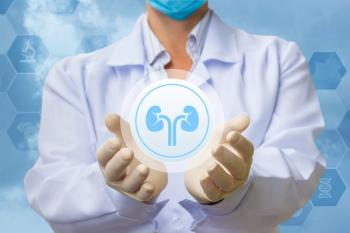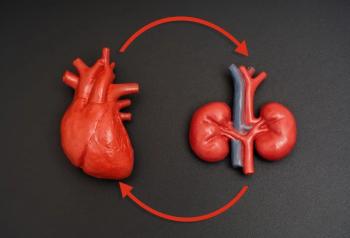
Heat Exposure Associated With Emergency Visits for Patients With Kidney Disease
An increased risk of emergency department visits for patients with kidney disease was found when patients were exposed to extreme heat.
A study published in the
The burden of kidney disease has been affected by the increasing role of climate change on the health of patients. Extreme heat exposure has been associated with morbidity, incidence, and hospital admission rates in kidney disease. The 8 subtypes of kidney disease that were included in this study were acute kidney injury (AKI), chronic kidney disease (CKD), urinary tract infection (UTI), kidney stones, lower urinary tract calculi, nephritis and nephrosis, other kidney and ureter disorders, and other lower urinary tract disorders.
This case-crossover study evaluated the association between extreme heat exposure and the acute and severe exacerbations of kidney disease. ED visit data from the New York Statewide Planning and Research Cooperative System were used to determine this association. Data were collected from January 1, 2005, to December 31, 2013.
Heat exposure on case days (immediately before ED visits for kidney disease) was compared with control days (days on which the patient did not go to the ED). Control days were the same days of the week in the same calendar month as the case day. The week following the extreme heat exposure was also examined (lag days 0 to 6). Patients with multiple visits to the ED were included and treated as individual cases.
Weather data were collected from the US Environmental Protection Agency and the National Oceanic and Atmospheric Administration. Particulate matter and ozone were added as confounding factors due to their association with kidney disease.
There were 1,114,322 ED visits for kidney disease in New York that were identified for this study. The researchers found that there was an increasing risk of renal ED visits as the temperatures increased. Extreme heat exposure was associated with a 1.7% (95% CI, 0.9%-2.5%) to 3.1% (95% CI, 2.3%-4.0%) higher risk of a renal ED visit. The effect of extreme heat exposure on renal ED visits increased from lag day 0 to lag day 2 but weakened afterwards.
The transitional months of May and September (excess rate [ER], 1.8% to 5.1%) had a stronger association between extreme heat exposure and ED visits compared with summer months (ER, 1.5%-2.7%). Extreme heat exposure was found to be associated with renal ED visits for a whole week in May, with the strongest association on lag day 2 (ER, 5.1% [3.4%-6.8%]). The association was strongest on lag day 0 (ER, 4.2% [2.6%-5.8%]) in September but the association was lost after lag day 4.
Extreme heat exposure was associated with increased visits to the ED due to AKI, kidney stones, UTIs, other kidney and ureter disorders, and other lower urinary tract disorders, with the association strongest for AKI. The association lasted for 4 days after the heat exposure. The association between heat exposure and kidney stones lasted a week and the association with other lower urinary tract disorders started on lag day 4.
Modification of the association was significant when age and gender were taken into account. Older individuals (≥65 years) had more renal ED visits in the short-term period after heat exposure (lag days 0-3). Participants aged 18 to 65 years and 5 to 18 years had a higher risk of renal ED visits during the whole week following extreme heat exposure. This association was found to be stronger in male participants compared with female participants.
There were some limitations to this study. The authors noted the sample size and the existence of confounders as potential concerns. Severe cases of kidney disease were the only type evaluated in this study, as only ED visit data were used. Individual exposure to heat or access to air conditioning was not evaluated. Exposure misclassification was likely due to all cases in a county being assigned the same temperature values.
The researchers concluded that extreme heat exposure was associated with an increased risk of visits to the ED for multiple types of kidney disease, with the association higher in transitional months.
Reference
Qu Y, Zhang W, Boutelle AYM, et al. Associations between ambient extreme heat exposure and emergency department visits related to kidney disease. Am J Kidney Dis. Published online October 11, 2022. doi:10.1053/j.ajkd.2022.09.005
Newsletter
Stay ahead of policy, cost, and value—subscribe to AJMC for expert insights at the intersection of clinical care and health economics.








